
Arival advances the business of creating amazing in-destination experiences. We provide events, insights, and community for creators and sellers of tours, activities, and attractions and experiences.
Get in-destination insights and sign up for our industry-defining newsletter or join us at one of our upcoming conferences.
-
05 Sep 23
NEWS
Arival 360 Conference to explore the future of AI in travelThe lineup of events and speakers has been announced for the annual Arival 360 Conference 2023. ...Read moreArival 360 Conference to explore the future of AI in travel - News & announcementsThe lineup of events and speakers has been announced for the annual Arival 360 Conference 2023. It takes place in Orlando, Florida, from October 9-12. It attracts leaders in the global tours, experiences and activities sector. Major topics this year will include AI for the experiences industry, digital distribution, and pricing. "The travel industry and the way people experience it is going through another period of dynamic change – and experiences are at the heart of that," said Douglas Quinby, CEO, Arival. Over 1,000 delegates from tours, activities, attractions and experiences sectors are expected to attend. Confirmed speakers include: ALKA CARTER-MANNING, Regional Director EMEA & Global Accounts, TUI Musement CASANDRA MATEJ, President & CEO, Visit Orlando SARAH DINES, Chief Commercial Officer, Viator GREG DESHIELDS, Executive Director, Tourism Diversity Matters DAN CHRISTIAN, CEO & Founder, Acceleration Team, Inc. JUDY GAULTHIER, Chief Commercial Officer, Go City LISA CHEN, President, ToursByLocals JUSTIN CHARSCHAN, Manager, Ticketing, Major League Baseball MARC MEKKI, Innovation Thinker, Inspire Limitless MICHAEL CHUA, Vice President, Global Business Development & Strategic Partnerships, Ticketmaster Entertainment, Inc. MYRA GALINATO, Vice President & General Manager, Blue Hawaiian Activities SCOTT O'NEIL, CEO, Merlin Entertainments Delegates will also have the opportunity to connect with peers and key distributors and potential partners. This year's event hosts the first ever Arival and TourReview Spotlight Awards – a duo of awards aimed at recognizing outstanding businesses. The Conference takes place at the Rosen Shingle Creek, one of the largest full-service convention hotels in Central Florida. Delegates can register here. -
01 Sep 23
Partner News
When Tour Operators Become First Responders: Adapting To The Challenges Of Climate Change – ArivalOperators are feeling the impacts of climate change, from wildfires to heat waves to ...Read moreWhen Tour Operators Become First Responders: Adapting To The Challenges Of Climate Change – Arival - News & announcementsOperators are feeling the impacts of climate change, from wildfires to heat waves to hurricanes. Here’s how some operators are helping in the short term… and planning to adapt in the future
When the devastating wildfire tore through Lahaina, a popular tourist destination on the west side of Maui, operators with the resources to do so were quick to help in any way they could. Helicopter tour company Blue Hawaiian literally flew into action, sending its helicopters to assist with evacuation and deliver food and supplies to the community, which was cut off by road. Many boat tour operators did the same, and Blue Hawaiian coordinated with land tour operators to help with delivering supplies once the road was open again. “It’s a no brainer, really,” said Myra Galinato, General Manager at Blue Hawaiian Activities, the activity concierge branch of Blue Hawaiian. “It’s really been a community-based effort,” she shared with Arival.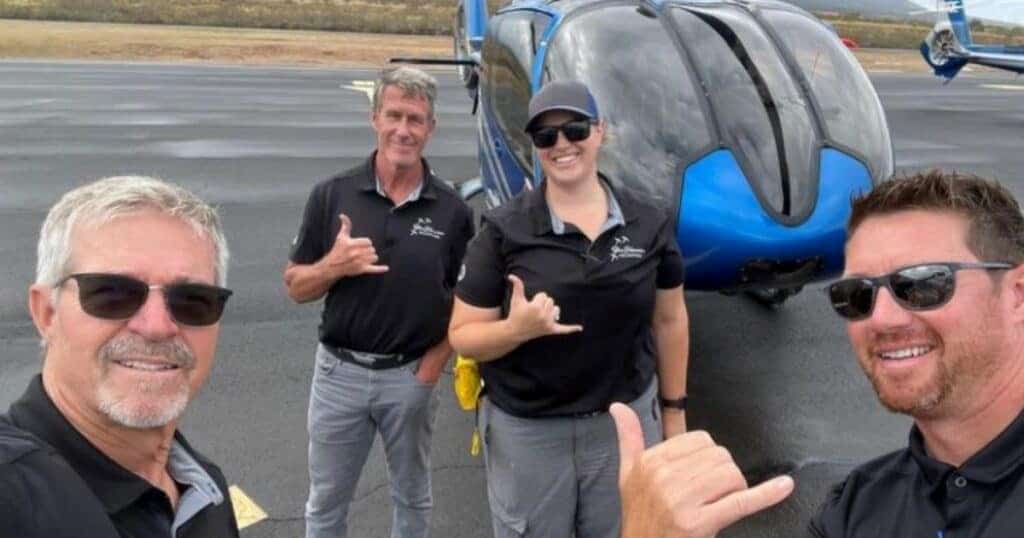 Image caption: Blue Hawaiian’s team on its mission in Lahaina, Maui
Her words echoed those of Stefan Kuenzel from Kayak Excursions, who despite having the marina he owned in Fort Worth, Florida swept away by Hurricane Ian last September, immediately jumped into action with what resources he had left to help deliver supplies to people in the hardest-hit areas.
But while we love to hear stories about the willingness and resourcefulness of tour and activity operators to respond to tragedy as real-life superheroes — after all, it speaks volumes of the quality, strength and passion of the operator community — what will the broader implications on tourism be?
How much more can operators still rebuilding from the pandemic withstand? And where do we go from here?
THE SHORT-TERM PIVOT: RELIEF AND SURVIVAL
In the short term, Blue Hawaiian is focused on pivoting to help with the relief efforts. Their pilots delivered 6000 meals in the first morning after the fire, and they have essentially sponsored the relief and evacuation helicopter flights — which at a price point of $3600 per roundtrip charter is no small contribution.
They also partnered with Red Lightning, a company that normally provides disaster aid and emergency relief supplies to developing countries, to fly Starlinks over to Lahaina in order to provide them with interim internet access.
Meanwhile in Canada, where even as I write this some of my own family members’ homes are uncomfortably close to currently active wildfire evacuation zones, more tour operators are finding ways to help — despite uncertainty about their own business’ survival.
Hoodoo Adventure Company — based in the Okanagan region of British Columbia, a popular travel destination for summer vacationers and wine enthusiasts — initially offered a free emergency shuttle service out of the region for travelers attempting to leave, but stranded by flight cancellations.
Now, they are pivoting from offering tours, to offering a paid shuttle service for essential travel to and from the region to help cover costs and keep staff employed during the immediate aftermath of the wildfires, while a non-essential travel ban is in place.
Although they are charging for the service now, owner Lindie Hill emphasizes this is to cover costs of staff wages and mileage: “this is a way to put our staff and vehicles to work and to be able to support the community and the travelers who are stranded here, and also help the people in Vancouver who need to get back,” she explained in an interview with CTV News.
THE MEDIUM TERM ASK: DON’T CANCEL YOUR PLANS
Whether operators can afford to foot the bill themselves or need help covering the costs of their relief efforts, Galinato and Hill alike worry about the implications for the tour operators in their areas, many of whom are still recovering financially from the pandemic, if travelers choose to stay away or cancel their plans.
“This will be the straw that broke the camel’s back for a lot of businesses sadly. It’s going to be a really difficult time for the community,” said Hill.
“We want to make sure that everybody hears that Maui is open,” emphasized Galinato, “please don’t stop coming to Hawaii, it’s safe. The devastation has occurred, now we come together as a tight-niched community and begin to recovery and rebuild.”
While the west side of Maui is closed for recovery, the rest of Maui and the other Hawaiian Islands are open for visitors, and operators that are contributing their own funds and staff to the relief efforts need visitors to keep supporting their economy in order to continue to be viable. “The Maui residents want people to visit Maui,” she continued, “we want to keep our employees employed… Please come and spend your money, so we can use the money to rebuild.”
And if any operators around the world are thinking about retiring and wondering what to do with their extra boats/bikes/surfboards/kayaks/etc, the 21+ operators in Lahaina that have suffered a total loss may be able to put those things to use, she added.
THE BIG PICTURE VIEW: THIS ISN’T GOING AWAY
From hurricanes to heat waves to wildfires, if it seems like it’s one thing after another — that’s because it is.
“Recent studies show that climate change has made extreme weather events 50% more likely,” writes Gloria Guevara, Head of the Sustainable Tourism Global Center, in her article Disaster is on the horizon for travel and tourism if we don’t start doing things differently.
“The frequency of climate-related events is escalating,” agreed Matt Berna, Intrepid Travel President for The Americas. “As a global business you simply can’t escape it… Our monthly operational report lists weather-related disasters (fires, floods, landslides, typhoons, and extreme storms) more and more frequently. Climate change is real, and we are evaluating our trips/products as we go forward.”
Heat waves in Europe, for example, are increasing in intensity and duration. This summer, popular Athens attraction The Acropolis made the news for shutting at noon, due to employees striking about unsafe conditions for staff and visitors.
Image caption: Blue Hawaiian’s team on its mission in Lahaina, Maui
Her words echoed those of Stefan Kuenzel from Kayak Excursions, who despite having the marina he owned in Fort Worth, Florida swept away by Hurricane Ian last September, immediately jumped into action with what resources he had left to help deliver supplies to people in the hardest-hit areas.
But while we love to hear stories about the willingness and resourcefulness of tour and activity operators to respond to tragedy as real-life superheroes — after all, it speaks volumes of the quality, strength and passion of the operator community — what will the broader implications on tourism be?
How much more can operators still rebuilding from the pandemic withstand? And where do we go from here?
THE SHORT-TERM PIVOT: RELIEF AND SURVIVAL
In the short term, Blue Hawaiian is focused on pivoting to help with the relief efforts. Their pilots delivered 6000 meals in the first morning after the fire, and they have essentially sponsored the relief and evacuation helicopter flights — which at a price point of $3600 per roundtrip charter is no small contribution.
They also partnered with Red Lightning, a company that normally provides disaster aid and emergency relief supplies to developing countries, to fly Starlinks over to Lahaina in order to provide them with interim internet access.
Meanwhile in Canada, where even as I write this some of my own family members’ homes are uncomfortably close to currently active wildfire evacuation zones, more tour operators are finding ways to help — despite uncertainty about their own business’ survival.
Hoodoo Adventure Company — based in the Okanagan region of British Columbia, a popular travel destination for summer vacationers and wine enthusiasts — initially offered a free emergency shuttle service out of the region for travelers attempting to leave, but stranded by flight cancellations.
Now, they are pivoting from offering tours, to offering a paid shuttle service for essential travel to and from the region to help cover costs and keep staff employed during the immediate aftermath of the wildfires, while a non-essential travel ban is in place.
Although they are charging for the service now, owner Lindie Hill emphasizes this is to cover costs of staff wages and mileage: “this is a way to put our staff and vehicles to work and to be able to support the community and the travelers who are stranded here, and also help the people in Vancouver who need to get back,” she explained in an interview with CTV News.
THE MEDIUM TERM ASK: DON’T CANCEL YOUR PLANS
Whether operators can afford to foot the bill themselves or need help covering the costs of their relief efforts, Galinato and Hill alike worry about the implications for the tour operators in their areas, many of whom are still recovering financially from the pandemic, if travelers choose to stay away or cancel their plans.
“This will be the straw that broke the camel’s back for a lot of businesses sadly. It’s going to be a really difficult time for the community,” said Hill.
“We want to make sure that everybody hears that Maui is open,” emphasized Galinato, “please don’t stop coming to Hawaii, it’s safe. The devastation has occurred, now we come together as a tight-niched community and begin to recovery and rebuild.”
While the west side of Maui is closed for recovery, the rest of Maui and the other Hawaiian Islands are open for visitors, and operators that are contributing their own funds and staff to the relief efforts need visitors to keep supporting their economy in order to continue to be viable. “The Maui residents want people to visit Maui,” she continued, “we want to keep our employees employed… Please come and spend your money, so we can use the money to rebuild.”
And if any operators around the world are thinking about retiring and wondering what to do with their extra boats/bikes/surfboards/kayaks/etc, the 21+ operators in Lahaina that have suffered a total loss may be able to put those things to use, she added.
THE BIG PICTURE VIEW: THIS ISN’T GOING AWAY
From hurricanes to heat waves to wildfires, if it seems like it’s one thing after another — that’s because it is.
“Recent studies show that climate change has made extreme weather events 50% more likely,” writes Gloria Guevara, Head of the Sustainable Tourism Global Center, in her article Disaster is on the horizon for travel and tourism if we don’t start doing things differently.
“The frequency of climate-related events is escalating,” agreed Matt Berna, Intrepid Travel President for The Americas. “As a global business you simply can’t escape it… Our monthly operational report lists weather-related disasters (fires, floods, landslides, typhoons, and extreme storms) more and more frequently. Climate change is real, and we are evaluating our trips/products as we go forward.”
Heat waves in Europe, for example, are increasing in intensity and duration. This summer, popular Athens attraction The Acropolis made the news for shutting at noon, due to employees striking about unsafe conditions for staff and visitors.
 Image caption: Lineups to outdoor attractions lasting over an hour in a heat wave are not just uncomfortable, they’re unsafe | Photo: Pexels / Jo Kassis
“It wasn’t so much the temperature as it was the length,” Tina Sklavolia-Kyriakis of Alternative Athens shared with Arival of Southern Europe’s two-week-long heat wave this past July.
While they adapted the tours by adding headsets to make it easier for the guides, and gave an option to replace part of an outdoor tour with an indoor tour (such as a museum) or to have a refund, but very few (maybe five percent) chose the alternatives: “The people that were here really wanted to do the Acropolis no matter what,” Kyriakis said.
Arival heard from several other operators whose businesses have been affected by the heat waves, which in some cases affected booking levels and the ability of the operators to offer a consistent quality of experience.
Kyriakis and Berna both predict the increased temperatures could result in a prolonged season, with tourists looking to travel outside of the hottest periods, or to cooler areas.
“We anticipate that unpredictable weather conditions in the future will have a greater impact on traveler’s choices in Europe during the summer months,” shared Berna. “We have seen consistent growth in fall and spring bookings in Europe since 2018 — increasing by 56% and 70% in 2023 compared to pre-pandemic levels with the most popular shoulder destinations including Greece, Italy and Spain.”
ARIVAL 360 | BERLIN 2024
THE LONG TERM OUTLOOK: CHANGING AND ADAPTING
While a longer peak season could have its benefits for operators, in the long term the negative impacts of climate change will be impossible to ignore.
“Within 10 years, many beaches are going to be underwater,” predicted Berna. “There’s no doubt that certain destinations are going to go off the map and we’re just not going to be traveling to them.”
Regardless of whether you believe the latest disasters are due to climate change or giant lasers from space, the reality is operators need to prepare and adapt in order to mitigate the negative impacts of weather-related challenges and ensure their long-term viability in the future.
So what can we do? “It is critical that we get a better understanding of how we need to change and adapt to this new reality,” advised Berna.
Some attractions are looking at ways to adapt their policies in cases of increasingly challenging weather conditions. For example, Sea World has expanded its inclement weather policy to include a wider range of inclement weather, and will offer refunds when abnormal weather causes ride closures for over 60 minutes or early park closure, or temperatures reach a heat index of 110 degrees or above.
For operators, this could also mean changing where you take people on your tours. A common theme of the most recent Arival event in Bangkok was overtourism, and how to mitigate the negative impacts of it while also taking advantage of increased traveler preferences for getting “off the beaten track,” by designing and promoting new experiences to less-visited areas. This can help reduce the negative impacts on overwhelmed tourist hot spots, while also spreading out the positive economic impacts of tourism to new communities.
“In 2023 we’ve launched new trips in lesser-visited destinations like Pakistan, Comoros and Timor-Leste,” Berna shared, as an example.
Image caption: Lineups to outdoor attractions lasting over an hour in a heat wave are not just uncomfortable, they’re unsafe | Photo: Pexels / Jo Kassis
“It wasn’t so much the temperature as it was the length,” Tina Sklavolia-Kyriakis of Alternative Athens shared with Arival of Southern Europe’s two-week-long heat wave this past July.
While they adapted the tours by adding headsets to make it easier for the guides, and gave an option to replace part of an outdoor tour with an indoor tour (such as a museum) or to have a refund, but very few (maybe five percent) chose the alternatives: “The people that were here really wanted to do the Acropolis no matter what,” Kyriakis said.
Arival heard from several other operators whose businesses have been affected by the heat waves, which in some cases affected booking levels and the ability of the operators to offer a consistent quality of experience.
Kyriakis and Berna both predict the increased temperatures could result in a prolonged season, with tourists looking to travel outside of the hottest periods, or to cooler areas.
“We anticipate that unpredictable weather conditions in the future will have a greater impact on traveler’s choices in Europe during the summer months,” shared Berna. “We have seen consistent growth in fall and spring bookings in Europe since 2018 — increasing by 56% and 70% in 2023 compared to pre-pandemic levels with the most popular shoulder destinations including Greece, Italy and Spain.”
ARIVAL 360 | BERLIN 2024
THE LONG TERM OUTLOOK: CHANGING AND ADAPTING
While a longer peak season could have its benefits for operators, in the long term the negative impacts of climate change will be impossible to ignore.
“Within 10 years, many beaches are going to be underwater,” predicted Berna. “There’s no doubt that certain destinations are going to go off the map and we’re just not going to be traveling to them.”
Regardless of whether you believe the latest disasters are due to climate change or giant lasers from space, the reality is operators need to prepare and adapt in order to mitigate the negative impacts of weather-related challenges and ensure their long-term viability in the future.
So what can we do? “It is critical that we get a better understanding of how we need to change and adapt to this new reality,” advised Berna.
Some attractions are looking at ways to adapt their policies in cases of increasingly challenging weather conditions. For example, Sea World has expanded its inclement weather policy to include a wider range of inclement weather, and will offer refunds when abnormal weather causes ride closures for over 60 minutes or early park closure, or temperatures reach a heat index of 110 degrees or above.
For operators, this could also mean changing where you take people on your tours. A common theme of the most recent Arival event in Bangkok was overtourism, and how to mitigate the negative impacts of it while also taking advantage of increased traveler preferences for getting “off the beaten track,” by designing and promoting new experiences to less-visited areas. This can help reduce the negative impacts on overwhelmed tourist hot spots, while also spreading out the positive economic impacts of tourism to new communities.
“In 2023 we’ve launched new trips in lesser-visited destinations like Pakistan, Comoros and Timor-Leste,” Berna shared, as an example.
 Image caption: One way to tackle overtourism is by encouraging trips to lesser-visited destinations like Pakistan | Pexels / Aa Dil
Part of getting a better understanding is taking a hard look at how our own industry and practices impact the climate, according to Berna.
“Tourism accounts for about eight percent of the world’s carbon emissions,” he explained. “Just getting on a plane leaves a huge carbon footprint… We’ve had to face the reality that, while our own operations are getting greener, travelers still must physically reach their destination.”
“Everything has a carbon footprint, and the only way to make a change is to own our impact, not shy away from it,” he said, explaining that Intrepid is investing in practices to track and report on the carbon footprint of their trips, and identifying ways to reduce it. He encourages other tour and activity operators to consider how they can do the same.
The Good Tourism Institute, as an example, provides resources specifically designed for tour operators looking to run a sustainable business while alsoincreasing profitability, including a guide on how to measure your carbon footprint.
Additionally, Galinato encouraged operators to be prepared to mobilize in the case of a disaster hitting their community, especially those who have resources like helicopters or boats at their disposal: “Take this situation and maybe start planning for it in your community and how you can help in your community.”
SUSTAINABILITY & EXPERIENCES: LEARN MORE AT ARIVAL
Interested in how you can adapt to the challenges of climate change and “future-proof” your tour, activity or attraction company? Check out our report on Tours, Activities and Sustainability, and join us at Arival 360 | Orlando where we’ll learn more about sustainability in experiences, and Myra Galinato will be presenting in a panel session called Navigating the Seas and Shores about working with distribution beyond online travel agencies (OTAs).
Image caption: One way to tackle overtourism is by encouraging trips to lesser-visited destinations like Pakistan | Pexels / Aa Dil
Part of getting a better understanding is taking a hard look at how our own industry and practices impact the climate, according to Berna.
“Tourism accounts for about eight percent of the world’s carbon emissions,” he explained. “Just getting on a plane leaves a huge carbon footprint… We’ve had to face the reality that, while our own operations are getting greener, travelers still must physically reach their destination.”
“Everything has a carbon footprint, and the only way to make a change is to own our impact, not shy away from it,” he said, explaining that Intrepid is investing in practices to track and report on the carbon footprint of their trips, and identifying ways to reduce it. He encourages other tour and activity operators to consider how they can do the same.
The Good Tourism Institute, as an example, provides resources specifically designed for tour operators looking to run a sustainable business while alsoincreasing profitability, including a guide on how to measure your carbon footprint.
Additionally, Galinato encouraged operators to be prepared to mobilize in the case of a disaster hitting their community, especially those who have resources like helicopters or boats at their disposal: “Take this situation and maybe start planning for it in your community and how you can help in your community.”
SUSTAINABILITY & EXPERIENCES: LEARN MORE AT ARIVAL
Interested in how you can adapt to the challenges of climate change and “future-proof” your tour, activity or attraction company? Check out our report on Tours, Activities and Sustainability, and join us at Arival 360 | Orlando where we’ll learn more about sustainability in experiences, and Myra Galinato will be presenting in a panel session called Navigating the Seas and Shores about working with distribution beyond online travel agencies (OTAs). -
08 Jul 23
Expert Hub
Why Is Airbnb Pausing Experiences?Industry insiders weigh in on what’s next for Airbnb Experiences and the impact to ...Read moreWhy Is Airbnb Pausing Experiences? - News & announcementsIndustry insiders weigh in on what’s next for Airbnb Experiences and the impact to operators using the platform. The recent news that Airbnb is pausing new submissions on its experiences platform has come as a surprise to many, especially after Airbnb CEO Brian Chesky declared in August 2022 that experiences are “going to be a big part of our story in 2023 and beyond over the next five years.” This pause of new submissions does not impact existing experiences, but current as well as new hosts can no longer add experiences to the platform. Airbnb is a significant distribution partner for many experience creators, and has had a huge impact on the industry as a whole, as discussed in Arival’s Inside Airbnb Experiences report. So what does this mean for the experiences sector of travel; tours, activities and attractions, what we at Arival call The Best Part of Travel? What will the impact on the experiences industry be if this “pause” endures? We checked in with a number of operators using the Airbnb platform and industry pundits to gauge the impact and current sentiment of those affected by the news. Here’s what they had to say. AIRBNB EXPERIENCES NEEDS TO CHANGE Airbnb is an essential distribution partner for many operators due to their volume and their lower commissions (20%, which is below the industry standard of 25-30% or more among other online travel agencies). Operators had a lot of positive things to say about the platform, but many also noted that major improvements are needed. “Airbnb is the reason I have a tour business,” says Justin Steele, Founder of Local Sauce Tours. “I started in 2018 with an ‘off the beaten track’ walking tour exclusively on Airbnb Experiences…. It would have been impossible to achieve the quick growth I did without Airbnb. Even now, although I’m on basically all platforms, Airbnb brings in about one third of my bookings.” Even with his highly positive experience, Steele thinks Airbnb is making the right choice to hit pause for improvements. “As a host I know there were lots of poor experiences on there in terms of product-market fit,” he shares. “So I think they know they need to improve supply and make some big changes to the platform, and they can’t keep on approving new experiences when they are going to make changes soon — that wouldn’t be fair on the hosts of the new experiences. The pause gives them breathing space.” Brian Cain, Owner of Crawl New Orleans, Crawl Nashville & Crawl Austin and an active host on Airbnb has a lot of love for the platform as well. Because of their demographics (typical customers are under 40 years old), people staying at Airbnbs are finding his tours via the targeting and retargeting that Airbnb does once lodging is booked. “I have to be listed there, they bring a lot of bookings,” he shares. Like many other tour operators, Cain has also taken advantage of Airbnb’s co-host feature. This enables his company to be listed, with multiple tour guides shown as hosts for the Airbnb Experiences. However Cain also recognizes change is needed. “When I saw the news I wasn’t surprised, but some things have to change,” with ensuring hosts have the proper permits and insurance high on his list. “New Orleans is a highly regulated city, guides need licenses, companies need permits, most Airbnb hosts aren’t legit businesses here in NOLA,” he explains. “But once my guides see they can get on the platform without these costs and make direct bookings, many of them leave us to be an Airbnb host. I hate that this makes it difficult for us to hire and retain guides and have to compete with my former guides in this environment”.
Crawl New Orleans operates an “Adults Only Ghost Tour” via Airbnb Experiences
CONNECTIVITY TO RESTECHS TOP OF EVERYONE’S WISH LISTS While opinions on exactly which changes were needed varied by operator, lack of connectivity to restechs (industry shorthand for reservation technology) or booking systems was mentioned by every operator as a major hindrance and pain point to listing experiences on Airbnb. Every Airbnb booking causes manual receipt of emails to then input into your reservation system while receiving no customer information (email, phone number), explains Cain. “Each booking is time consuming and inefficient.” “They’ve never shown interest in connectivity,” observes John O’Sullivan, Founding Director of Depot Adventures. “They focus on ‘quality experiences,’ which really seems to mean uniqueness. For me, they have to start connecting with restechs via API connections to grow their business and their operator partner’s businesses.” For smaller operators, connectivity may not always be top of mind. “I use a restech and it’s actually not hard to keep on top of new bookings,” shares Steele. “I do have to add Airbnb bookings manually but it takes less than a minute to do so. At the moment I’m getting around 50 bookings a month from Airbnb so that is maybe one hour a month spent on entering bookings.” However, as operators grow, connectivity becomes more indispensable. For Eliav Cohen, Co-Pilot of Seattle Ballooning, this lack of connectivity was a deal breaker. “As a hot air balloon company I used them years ago but found due to them not integrating with booking systems, it wasn’t scaleable.” Airbnb’s neglect of connectivity to restechs is the biggest headache for their partners and biggest roadblock to Airbnb’s future success with experiences. If this pause allows them to rethink that strategy, it could help them win over more operators and drive more volume more efficiently. Adding connectivity to OCTO, an industry standard for connectivity, plus a few additional integrations could create connectivity to thousands of leading operators fairly quickly. SHOULD AIRBNB EXPAND BEYOND “UNIQUE EXPERIENCES?” In terms of how exactly Airbnb should change, reviews are mixed on whether they should double down on their core focus of unique “live like a local” experiences… or expand beyond it. “Airbnb is stuck between a rock and a hard place trying to build a profit center based on curated low-profit tours,” observes Mitch Bach, co-founder and CEO of TripSchool. As Bach explains, the “marketing-friendly long tail” of unique experiences like goat yoga and beer in treehouses may be better for PR than more classic experiences including man made and natural attractions, but they have low profit margins and are not proven to be scalable. “Add to that purposely eschewing the traditional base of guides and tours, it’s an uphill battle creating and training a new market,” says Bach. “The justification for experiences in my mind has been generating loyalty to the brand as a sort of add-on reward, but not a profit center. To go beyond that will require a fundamental shift of vision.” For some operators, this add-on model works well. “Most of the bookings we receive come from guests staying at local Airbnbs,” shares Depot Adventures’ O’Sullivan. “I think of them as a concierge for the city. Viator is a much bigger channel, but Airbnb bookings have grown over 100% since 2019.” O’Sullivan believes Airbnb represents a big part of the discovery of experiences, in contrast with other OTAs who he sees as primarily booking engines. “Airbnb is such a different product than other OTAs,” he says. He fears that if Airbnb goes away, many of his customers will as well as they wouldn’t discover his tours through other channels. “But I don’t believe they are winding down, I do think this is a pause to take another look at the overall business.”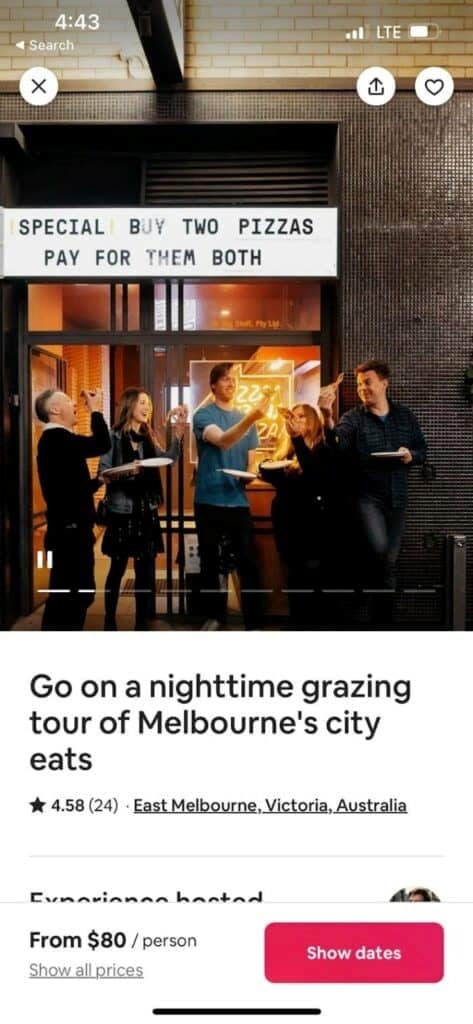
One of Depot Adventures’ experience listings on Airbnb
Withlocals is one of the leading platforms in the world for travelers to “travel with a local”, similar in many ways to Airbnb Experiences. “Scaling a very diverse portfolio of unique, individual experiences is crazy difficult,” offers Matthijs Keij, CEO of Withlocals. “I haven’t seen any company yet that has been able to pull this off. The main challenge on the supply side is to maintain both the quality and the uniqueness of the portfolio.” “In the case of Airbnb,” observes Keij, “the sheer volume of experiences offered has made it challenging to manage the platform effectively, leading to inconsistencies in quality and availability. So it’s not a major surprise they want to rethink the way experiences contribute to their overall success.” Airbnb has relied on lodging guests to drive their business and for many smaller operators and hosts, and that has been a good source of bookings. But the focus on unique and niche experiences leaves a lot of bookings and money on the table. According to Arival research, approximately 80% of industry revenue comes from 10% of operators (the large and iconic tours, activities and attractions). WILL WHAT WORKED FOR ACCOMMODATIONS WORK FOR EXPERIENCES? While experiences is sometimes seen as an add-on to Airbnb’s primary business model of accommodation, there are signs they’re attempting to model its development after the success of their lodging offerings. When it launched, Airbnb started with people sharing rooms, homes and sometimes unique, even weird places. They then expanded to include full home rentals, which led into the vacation rental market, building connectivity to leading vacation rental reservation systems, and diversification into hotels with their acquisition of HotelTonight. As previously reported by Arival. Airbnb appeared to be taking a similar approach with experiences, gradually adding on more conventional tours and encouraging some experience hosts to build experiences around highly sought-after points of interest, such as the Eiffel Tour, the Louvre and other iconic sites and attractions in major destinations. In 2019 Airbnb made a significant investment in Tiqets, a leading experiences OTA. Tiqets focuses on mainstream attractions from museums to iconic attractions such as the Statue of Liberty, The Vatican and the London Eye. This certainly seemed to be a signal at the time that Airbnb was investing in distribution of more traditional experiences. But they haven’t integrated Tiqets products and it’s unclear what that investment – if anything – means for Airbnb. However, not everyone thinks following the same pattern is the right move. “Things-to-do is not the same as places-to-stay,” comments Christian Watts, founder and CEO of Magpie Travel. “I think they fell into the trap of trying to build the exact same concept as they did in homes.” If Alex Grant, Founder of Travel Curious is right, Airbnb may never succeed so long as accommodation remains its core business. “It’s so messy that I believe only an experiences- and tours-first company mindset will ever dominate,” says Grant. AIRBNB PAUSE GIVES OPERATORS BREAK FROM COMPETITION, BUT ALSO HALTS EXPANSION For some, the pause is a cause for some nervousness, but also a welcome break from new competition. “My experiences are all set, so in some ways this is good news, I won’t see other competitors start to pop up in my areas,” shares O’Sullivan. “But I am concerned about their strategy changing. Because they’re such an important partner I hope they will continue, and not just continue, but improve the platform for operators. There is so much that’s good about working with Airbnb Experiences, I hope this pause gives them time to make significant strategic changes.” “I’m happy that it will reduce competition and I’m excited for changes to make it a better platform,” agrees Brie Xavier, Owner of Brie’s Botanical Tours, who would like to see “more money spent on marketing experiences, more support for experience hosts such as training, certifications, helping with video and photo quality.” Xavier got started with Airbnb Experiences through hosting her house on Airbnb. Originally, Airbnb represented 90% of her bookings. Now that she has her own website with a restech booking widget, direct bookings are much more important and prevalent, and she shares the hopes of other operators that Airbnb’s improvements will include restech connectivity. Kara Ricciardi, founder of Stretchy Pants Food Tours, one of the first operators on Airbnb, isn’t concerned at all about the pause, although she would like to add new experiences. “As a small tour operator, Airbnb experiences has been lovely to work with and account for around half of Stretchy Pants’ revenue. I hope this pause will lead to fantastic updates in the category,” Ricciardi says. “I am still getting bookings so this pause, on my end, doesn’t feel like much has changed… I do have a new experience I would love to add, so I’m looking forward to a timeline from Airbnb about when I can add it.” However, some operators who rely on the platform find the pause disruptive. “It’s aggravating,” shares Cain, whose request to list experiences in Austin is now on hold. “I’m looked at as a new host in the market and despite the challenges, it’s important for us to be listed on Airbnb Experiences in this new market for us. I hope they make some necessary changes and start enabling new experiences to be listed soon.”
Airbnb’s menu no longer has the option to “Host an experience” (left: Dec. 2022, right: Apr. 2023)
WHAT’S NEXT FOR AIRBNB EXPERIENCES? Could this be the end? “It will be a hard sell to their hosts, as well as a blow to their brand and vision, if Airbnb decides to stop offering experiences altogether,” offers Keij. “On the other hand, from a financial perspective it would only be a small dent in their overall revenue.” However, Airbnb hasn’t indicated an intention to cancel experiences entirely. An Airbnb statement included, “We are excited about the future of Airbnb Experiences and expect to provide more information in the coming months.” So where do they go from here? “Given the fact that various experience companies show that you can build a differentiating product at scale, I would not be surprised if Airbnb takes this pause to reconsider their approach towards experience curation and the vetting of new hosts,” continues Keij. “Based on their company vision, experiences should play a pivotal role, even though accommodation is the primary financial driver.” Likely, Airbnb will continue to experiment. As Peter Syme, Partner at Tourpreneur observes:- “They have Brand recognition that is off the charts. Every single Airbnb customer I have hosted knows they booked with Airbnb. I cannot say that about any other OTA. Nothing like it.
- They have customers.
- The market is on fire and growing fast
- Supply is not an issue depending on what they want to do.
- Cash is not an issue.
- Talent is not an issue. Lots are available.”
-
08 Jul 23
Expert Hub
Travelers Can Now Find Tours Through Google Maps: Will They Find You?With the recent addition of “Experiences” to Google Maps, we revisit Things to do ...Read moreTravelers Can Now Find Tours Through Google Maps: Will They Find You? - News & announcementsWith the recent addition of “Experiences” to Google Maps, we revisit Things to do with an up-to-date walkthrough for operators and suppliers of tours, activities and attractions. Guided experiences are now available on Google Maps, in addition to attractions tickets, with the latest update to Google Things to do. Google is constantly experimenting with and evolving the way its “Things to do” module looks and works. Since launching Things to do in 2021, and launching it into Google Maps in 2022, there have been multiple iterations of the attraction and experience booking arm of Google Travel. So where are we at with Google Things to do now, what does it mean for operators, and how can you optimize your listings to take the most advantage of the opportunity? In an upcoming Arival | Elevate session on Google Things to do session, Christian Watts from Magpie Travel will walk us through a few of the top need-to-knows for operators and suppliers of tours, activities, attractions and experiences. Here’s a preview video from Watts, followed by some key Google Things to do need-to-knows below. A walkthrough of Google Things to do for tour, activity and attraction operators and suppliers with Magpie Travel’s CEO Christian Watts WHAT IS GOOGLE THINGS TO DO? Google Things to do is the tours, activities, attractions and experiences arm of Google Travel: in other words, Google’s window into the Best Part of Travel, the in-destination industry. It’s essentially the way Google displays search results for everything that people want to do when they get to a destination. Most importantly, for operators and suppliers of tours, activities, attractions and experiences — or things to do — it’s essential to getting found by travelers using Google to plan their trips… and it’s free. While there are paid ad options, product listings themselves are free, and when a user clicks on your listing they are brought directly to your website. “Google is always trying to find the right way to display the information for people,” explains Watts, “it’s a constant test, there’s new things coming out all the time.” HOW DOES GOOGLE THINGS TO DO WORK? Currently, there are multiple display surfaces where users can find things to do on Google, as Watts explains. Searching for a POI (point of interest) such as the Eiffel Tower will bring up an “admissions” section which lists tickets, and an “experiences” section which lists tours that include the Eiffel Tower as part of the tour. Searching for a location will also bring up POI options, and general travel-related searches may bring up a “Tickets & Tours” ad carousel. The most recent update is to Google Maps, which as of August 2022 began displaying tickets for attractions, and now is also displaying experiences, which is potentially huge for traffic for tour operators, as Watts observes. HOW DO I GET MY PRODUCTS LISTED ON GOOGLE THINGS TO DO? To get your products listed on Google Things to do, you can use a connectivity partner such as an online travel agency (OTA), reservation system or independent connectivity provider, or by using Google’s self-service editing tool launched in October 2022 for attractions. In the walkthrough video above, Watts explains the different types of connectivity partners, demonstrates the process of loading up a product listing using Magpie’s interface, and some important questions to ask your connectivity partner. While Google does offer a self-service tool, at Arival 360 | Berlin Google’s Director of Product Management overseeing Things to do, Emmanuel Marot explained the benefit of using a connectivity partner: “If you have many different product, then it becomes more complicated,” he explains, especially for larger operators who would need to upload and edit each product manually. “And of course one benefit of a connectivity partner is [they] would also push this inventory to other places in Google.” (Insider Pro Access members can watch Marot’s full session here.) DO I ACTUALLY NEED TO DO GOOGLE THINGS TO DO? “Do you need this? Yes, you need this now,” concludes Watts. “The OTAs have been doing this for months, they’re getting tons of bookings through this… other people are going to get the business indirectly if you don’t want to do it yourself. “This is a place where you can compete directly with [OTAs], they have no advantage over your products that are submitted,” continues Watts, “and your competitors are also doing it so it is something you need to jump on now, it’s only going to get more important.” To learn more about Google Things to do, get it directly from the source at Arival Activate | Bangkok 2023 in June, where a team from Google will be leading a session on Things to do for operators and suppliers of tours, activities and attractions. by Janelle Visser -
20 Apr 23
Partner News
Travel experiences in APAC forecast to approach pre-pandemic levels by 2024 – ArivalRecovery in Asia Pacific for travel’s third-largest sector – tours, activities and attractions – ...Read moreTravel experiences in APAC forecast to approach pre-pandemic levels by 2024 – Arival - News & announcementsRecovery in Asia Pacific for travel’s third-largest sector – tours, activities and attractions – is now well underway, with consumers putting experiences first in their travel planning and spending Travel experiences in Asia Pacific have returned to rapid growth as the region reopens to regional and long-haul travel, finds new research from Arival, released ahead of its Arival Activate event in Bangkok. Tours, activities and attractions – travel’s third-largest and fastest growing sector – will reach US$67 billion in 2024 and surpass the pre-pandemic peak to reach $75 billion in 2025, according to its The Outlook for Experiences 2019-2025 research. “The Asia Pacific region has borne the worst of the pandemic, with a broad regional shutdown in cross-border travel well beyond other parts of the world,” said Arival CEO Douglas Quinby. “But demand for travel in the region is now accelerating as many borders have reopened, encouraging travelers to return. As we saw when other regions reopened, travelers put experiences first in travel planning and spend. The challenge now will be for the global industry to get ready for the rapid influx of demand from across Asia Pacific.” Online bookings will surpass 30% of all tours, activities and attractions booking worldwide in 2025, up from 17% in 2019, according to Arival research. However, online booking volume across Asia Pacific will more than triple during the same period as younger travelers shape travel’s rebound. Online marketplaces and mobile-ready operators across the region will be best positioned to benefit. “The large, experience-hungry cohort of Gen-Z and millennial travelers in Asia are putting experiences first and they are willing to pay for it,” said Arival’s Quinby. “But operators must be ready. This means more small-group, immersive experiences that get travelers off the beaten. And it must all be discoverable and bookable on mobile, with plenty of Instagram- and TikTok-worthy moments.” The Arival Activate event takes place in Bangkok from June 12-14, and is expected to bring together hundreds of tours, activities and experiences professionals from across the region. Some reasons to attend Arival Activate:- Arival Activate is an event designed specifically for the Asian experiences Industry, including suppliers and operators of tours, activities, and attractions
- The primary focus this year is on aiding businesses in navigating their post-pandemic recovery through targeted sessions on digital strategies, networking and connecting with leading distributors and OTAs in the APAC region.
- There will be dedicated sessions on connectivity, channel management, dynamic pricing, generative chat, super apps, the guest experience, the future of distribution, sustainable tourism, culinary travel trends.
-
23 Feb 23
Partner News
Experience sector leaders to gather in Bangkok for Arival | Activate June 12-14, 2023More than 500 travel industry delegates set to attend Event will focus on shift ...Read moreExperience sector leaders to gather in Bangkok for Arival | Activate June 12-14, 2023 - News & announcements- More than 500 travel industry delegates set to attend
- Event will focus on shift towards experience-led travel industry in APAC and Oceania
-
14 Feb 22
Partner News
How To Grow Your Revenue With Gifting – ArivalThe gift of a tour, activity and experience is one that most people say ...Read moreHow To Grow Your Revenue With Gifting – Arival - News & announcementsThe gift of a tour, activity and experience is one that most people say that they would prefer. Virgin Experience Gifts’ Melanie White walked Arival 360 attendees through how operators can grow their business with gifting. Experience gifting is one of the hot trends coming out of the pandemic. The uncertainty of the supply chain crisis has pushed people away from physical presents towards giving memories. There are also demographic changes. Gen Z wants experiences more than they want stuff. “According to the 2021 Sitecore Holiday Trend Report, 71% of people surveyed responded that they would prefer to receive an experience based gift for the holiday,” Melanie White, executive vice president of Virgin Experience Gifts, told Arival 360 San Diego.The full talk is available on-demand for Arival Pro Access Members and Arival 360 Online attendees
An Eventbrite survey from 2018 suggested “that 85% of US adults agree that an experienced gift is a great way for both the gift giver and the recipient to enjoy something together. And that number jumps to 93% when looking just at millennial women,” she said.FLEXIBILITY IS ESSENTIAL
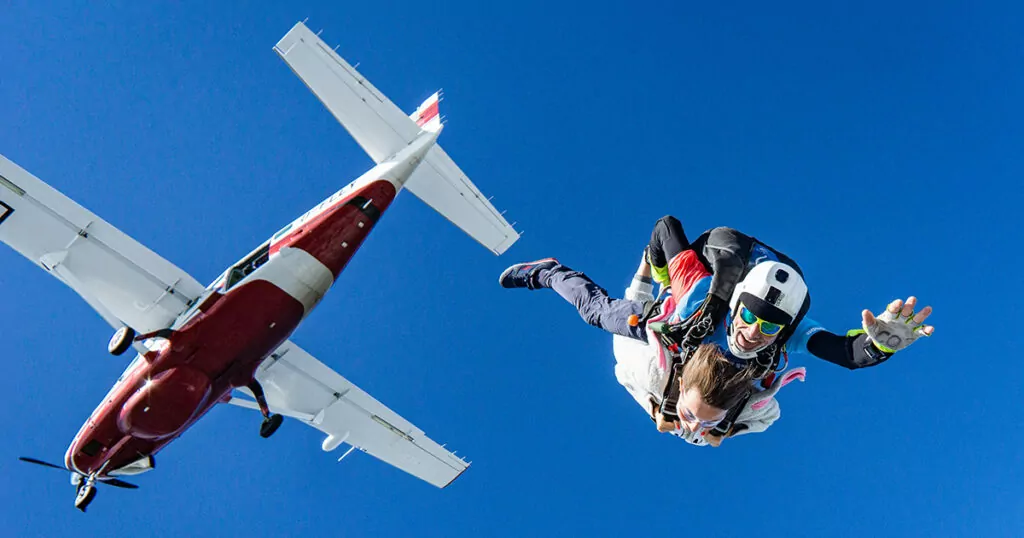 Recipients must be able to redeem their gift whenever they wish — Kamil Pietrzak / Unsplash
Flexibility is a must to sell tours, activities and attractions as gifts. The guest must be able to use it whenever they wish. White said that a potential customer will be put off and not buy a product simply because they are asked to choose a date.
“Arguably the most important [piece of the sales process] is flexibility,” White said. Guests need to be convinced that buying an experience gift is just as easy as buying a physical product.
“The gift giver wants a simple purchasing process and the confidence that when their recipient is going to be able to To redeem their gift whenever they’re ready.
Recipients must be able to redeem their gift whenever they wish — Kamil Pietrzak / Unsplash
Flexibility is a must to sell tours, activities and attractions as gifts. The guest must be able to use it whenever they wish. White said that a potential customer will be put off and not buy a product simply because they are asked to choose a date.
“Arguably the most important [piece of the sales process] is flexibility,” White said. Guests need to be convinced that buying an experience gift is just as easy as buying a physical product.
“The gift giver wants a simple purchasing process and the confidence that when their recipient is going to be able to To redeem their gift whenever they’re ready.
BE CREATIVE WITH GIFT PRODUCTS
 Create packages to build meaning for givers and recipients — Matt Bowden / Unsplash
Gifts are always meant to be special, even if they are not always well-received. That means if operators put in a little bit of extra effort to differentiate and package their products as gifts, they should see greater rewards.
White says that operators should “think outside the box with your offerings” to create packages and products that will help build meaning for the person receiving the gift. “Something as simple as a souvenir water bottle or a t shirt could make all the difference,” she said.
Create packages to build meaning for givers and recipients — Matt Bowden / Unsplash
Gifts are always meant to be special, even if they are not always well-received. That means if operators put in a little bit of extra effort to differentiate and package their products as gifts, they should see greater rewards.
White says that operators should “think outside the box with your offerings” to create packages and products that will help build meaning for the person receiving the gift. “Something as simple as a souvenir water bottle or a t shirt could make all the difference,” she said.
ENSURE CAPACITY IS AVAILABLE
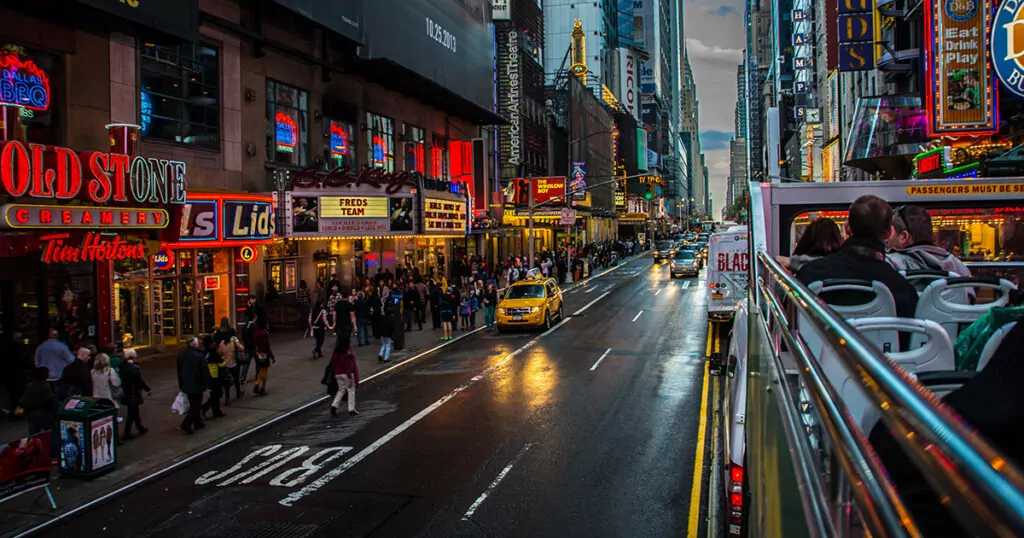 Create packages to build meaning for givers and recipients — Matt Bowden / Unsplash
While operators need to be flexible with the options that they provide for gift vouchers, it can cause issues with capacity planning. This may be more of a concern in a period of timed ticketing and capacity restraints.
Operators should consider creating unique products, White said, that allow them to manage visitors. That will allow operators to manage numbers and help experience recipients to redeem their tours without bother.
“One of the biggest challenges to a voucher base model for operators is capacity planning,” White said. “You may sell a high volume of vouchers during peak gifting times and it’s very important that the recipients of those gifts are able to easily redeem them whenever they’re ready.
“You may not want to offer your best selling tour that sells out daily. Instead, consider offering a unique gifting package for another tour with more availability.”
To access more interviews and watch curated content from the Arival conference, join us online
Arival 360 San Diego attendees have full access to Arival 360 Online. Tickets are $299 for non-members and Pro Access members can attend for free
Become a Pro Access member and get easy access to all of Arival’s online events, including Arival 360 San Diego, and our complete library of premium research and Arival guides for operators for a full year, starting at just $119 for small operators
Create packages to build meaning for givers and recipients — Matt Bowden / Unsplash
While operators need to be flexible with the options that they provide for gift vouchers, it can cause issues with capacity planning. This may be more of a concern in a period of timed ticketing and capacity restraints.
Operators should consider creating unique products, White said, that allow them to manage visitors. That will allow operators to manage numbers and help experience recipients to redeem their tours without bother.
“One of the biggest challenges to a voucher base model for operators is capacity planning,” White said. “You may sell a high volume of vouchers during peak gifting times and it’s very important that the recipients of those gifts are able to easily redeem them whenever they’re ready.
“You may not want to offer your best selling tour that sells out daily. Instead, consider offering a unique gifting package for another tour with more availability.”
To access more interviews and watch curated content from the Arival conference, join us online
Arival 360 San Diego attendees have full access to Arival 360 Online. Tickets are $299 for non-members and Pro Access members can attend for free
Become a Pro Access member and get easy access to all of Arival’s online events, including Arival 360 San Diego, and our complete library of premium research and Arival guides for operators for a full year, starting at just $119 for small operators -
14 Feb 22
Expert Hub
Reaching Gen Z: Getting Inside The Heads Of Today’s Young AdultsGen Z — 18–25-year-olds — are the first digital native cohort to begin exploring the ...Read moreReaching Gen Z: Getting Inside The Heads Of Today’s Young Adults - News & announcementsGen Z — 18–25-year-olds — are the first digital native cohort to begin exploring the world. How do you reach them, what do they want, and who even are they? Stephen Joyce explainsTimes they are a-changing, and with it everything that we know about marketing. The generation in their late teens and early twenties — Gen Z, or zoomers — are the first to live their whole lives with the internet in their pocket rather than tied to a desk. That has changed how they consume content and how they travel.Gen Z are the most diverse and inclusive cohort, and they care a lot — Denys Nevozhai / UnsplashWhile words work best when trying to sell to boomers, generation X and millennials online, it is pictures and video that inspire the youngest cohort. They are also to be found in different places online. Boomers and generation X are most likely to be found on Facebook, Instagram has a mix of mostly millennials and Gen X, and zoomers, with a handful of millennials, on TikTok and Snapchat. Everyone’s on YouTube.“They’re not going to these sites to just book a flight somewhere and hang out in the hotel. They want to do cool stuff. And they want that cool stuff to be the inspiration for them to travel. “Who has that stuff? You have that stuff, right? So this is where you get to be part of that experience for them.” Zoomers are also looking for a seamless online experience, which many operators do not provide. They are not used to websites that do not work, or that are heavy, clunky and don’t display properly on mobile. “They’re digital natives,” Joyce said. “They did not grow up with a crappy user experience. We grew up with slow internet, terrible software, terrible hardware, and we had to deal with that. “Our generations are much more forgiving. Gen Z doesn’t even know about this. “You, as owners, need to make sure that your mobile-first websites, your apps, and your booking engines are designed for the best possible user experience for this very, very discriminating generation.”The full talk is available on-demand for Arival Pro Access Members and Arival 360 Online attendees
Stephen Joyce, in-destination industry veteran and TikTok aficionado (94.9 thousand followers and counting) took to the stage at Arival 360 San Diego to educate the three older age groups on how to reach Gen Z.“IF YOU ARE USING FACEBOOK, YOU ARE NOT REACHING THE GEN Z AUDIENCE”
 Gen Z do not spend their time online using Facebook — Alexander Shatov / Unsplash
“It’s pretty clear that if you’re targeting millennials, Gen X and boomers on Facebook, you are not reaching the Gen Z audience,” Joyce said. “That is how different those two audiences are right now. Marketing and advertising campaigns that worked for those older generations simply won’t work for Gen Z.
“The reason is because, according to Snap in a survey, pretty much all of Gen Z has smartphones, and that’s the way that they’re researching and booking their travel. They are not talking to travel agents in real life or on the phone. They simply aren’t. They are moving online, they are shopping online, and surprisingly, they are using OTAs.”
That means operators need to reach them before the OTAs do — or rely on the OTAs performance marketing departments — and allow them to pay online using the methods they prefer.
Gen Z do not spend their time online using Facebook — Alexander Shatov / Unsplash
“It’s pretty clear that if you’re targeting millennials, Gen X and boomers on Facebook, you are not reaching the Gen Z audience,” Joyce said. “That is how different those two audiences are right now. Marketing and advertising campaigns that worked for those older generations simply won’t work for Gen Z.
“The reason is because, according to Snap in a survey, pretty much all of Gen Z has smartphones, and that’s the way that they’re researching and booking their travel. They are not talking to travel agents in real life or on the phone. They simply aren’t. They are moving online, they are shopping online, and surprisingly, they are using OTAs.”
That means operators need to reach them before the OTAs do — or rely on the OTAs performance marketing departments — and allow them to pay online using the methods they prefer.
WHAT ARE GEN Z LOOKING FOR?
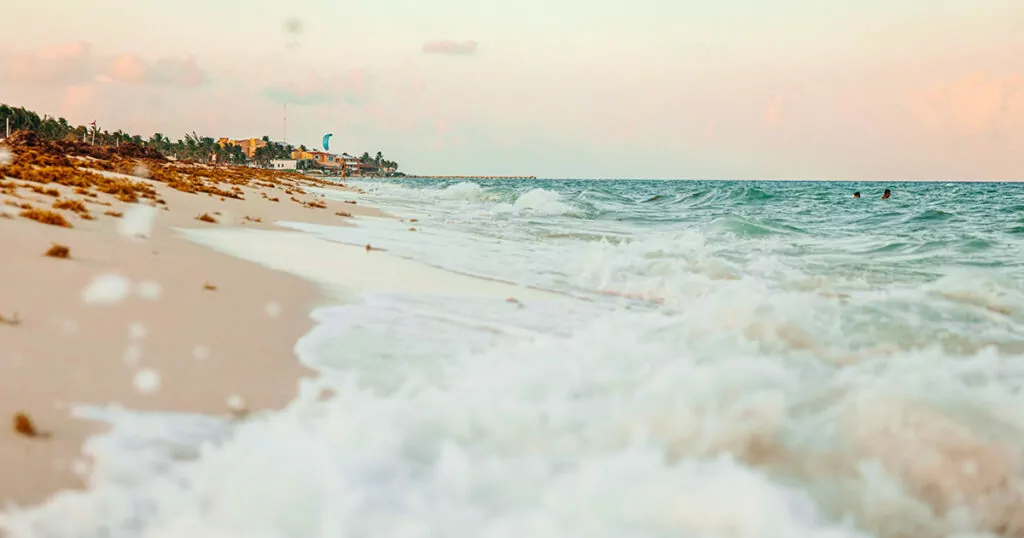 Unique experiences are what Gen Z travel for — Braden Collum / Unsplash
Research on Gen Z often shows that they are just not that interested in doing what everyone else has done before them. Like everyone before them, they want to be unique and authentic in their own way.
That means they are rejecting the fakery of Instagram and the (sorry boomers) sheer boredom of Facebook, its Minions and the memes that have appeared on all the other networks six months beforehand (Instagram is only a month behind).
This search for uniqueness extends to travel — they do not want to do what everyone else is doing. Gen Z wants a fuller and richer experience of their location than millennials, whose pictures from the 10 Most Instagrammable Places in Cancún they’ve seen a thousand times. Zoomers want to go big.
“80% of Gen Z’s are looking for unique, interesting, once-in-a-lifetime, bucket-list experiences — that’s what they’re looking for,” Joyce said.
Unique experiences are what Gen Z travel for — Braden Collum / Unsplash
Research on Gen Z often shows that they are just not that interested in doing what everyone else has done before them. Like everyone before them, they want to be unique and authentic in their own way.
That means they are rejecting the fakery of Instagram and the (sorry boomers) sheer boredom of Facebook, its Minions and the memes that have appeared on all the other networks six months beforehand (Instagram is only a month behind).
This search for uniqueness extends to travel — they do not want to do what everyone else is doing. Gen Z wants a fuller and richer experience of their location than millennials, whose pictures from the 10 Most Instagrammable Places in Cancún they’ve seen a thousand times. Zoomers want to go big.
“80% of Gen Z’s are looking for unique, interesting, once-in-a-lifetime, bucket-list experiences — that’s what they’re looking for,” Joyce said.
WHO ARE GEN Z?
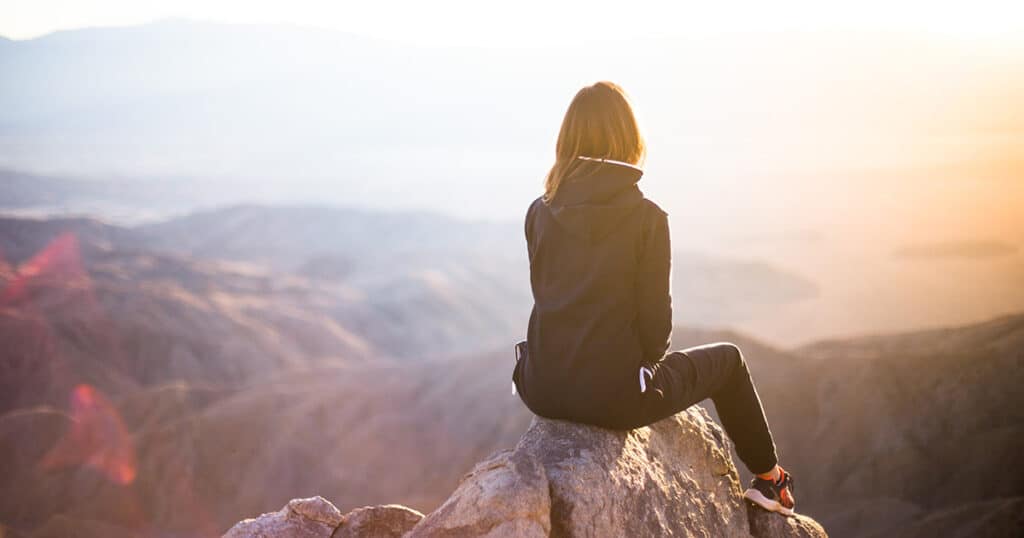 Largely, Gen Z seem to be good kids. Many — but not all — have the advantages that the generations before them have fought for, and they are fighting their own battles for the future. Most seem to be able to be who they want and are accepted. They care about others and themselves. Much of the information on the generation suggests they are less likely to smoke, drink or do drugs than those who came before them, and they enjoy exercise and staying healthy, particularly in the mind. “The other thing to keep in mind,” Joyce said. “Is that they care a lot. 60% of Gen Z care about DEI — they care about diversity, they care about equality and inclusion. “That needs to be part of the framework. So what do you do? Create once in a lifetime experiences, change up the offerings that you’ve got — if you want to target this generation — make sure that you build in sustainability. “54% of Gen Z say that they want to stay in green or environmentally-friendly hotels. 60% of them want to use environmentally-friendly methods of transport when they’re in destination and 54% of them will pay more to use those services. “You need to walk the walk on your diversity, equity and inclusion policies. They are looking for companies that support this because they are diverse. “They are hardworking, they are creative and they are flexible. And they value mental health over materialism.” They would probably also hate to be defined, just as we do. To access more interviews and watch curated content from the Arival conference, join us online Arival 360 San Diego attendees have full access to Arival 360 Online. Tickets are $299 for non-members and Pro Access members can attend for free Become a Pro Access member and get easy access to all of Arival’s online events, including Arival 360 San Diego, and our complete library of premium research and Arival guides for operators for a full year, starting at just $119 for small operators
Largely, Gen Z seem to be good kids. Many — but not all — have the advantages that the generations before them have fought for, and they are fighting their own battles for the future. Most seem to be able to be who they want and are accepted. They care about others and themselves. Much of the information on the generation suggests they are less likely to smoke, drink or do drugs than those who came before them, and they enjoy exercise and staying healthy, particularly in the mind. “The other thing to keep in mind,” Joyce said. “Is that they care a lot. 60% of Gen Z care about DEI — they care about diversity, they care about equality and inclusion. “That needs to be part of the framework. So what do you do? Create once in a lifetime experiences, change up the offerings that you’ve got — if you want to target this generation — make sure that you build in sustainability. “54% of Gen Z say that they want to stay in green or environmentally-friendly hotels. 60% of them want to use environmentally-friendly methods of transport when they’re in destination and 54% of them will pay more to use those services. “You need to walk the walk on your diversity, equity and inclusion policies. They are looking for companies that support this because they are diverse. “They are hardworking, they are creative and they are flexible. And they value mental health over materialism.” They would probably also hate to be defined, just as we do. To access more interviews and watch curated content from the Arival conference, join us online Arival 360 San Diego attendees have full access to Arival 360 Online. Tickets are $299 for non-members and Pro Access members can attend for free Become a Pro Access member and get easy access to all of Arival’s online events, including Arival 360 San Diego, and our complete library of premium research and Arival guides for operators for a full year, starting at just $119 for small operators
 United Kingdom
United Kingdom United States
United States Asia Pacific
Asia Pacific











